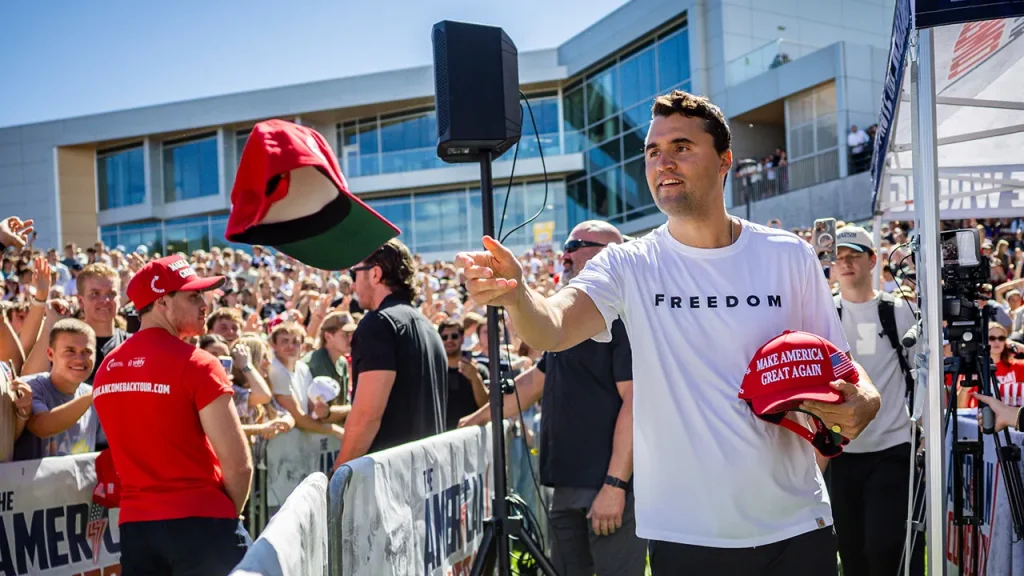Academia’s Response to Charlie Kirk’s Assassination: A Complex Reflection on Political Discourse
In the wake of Charlie Kirk’s tragic assassination at Utah Valley University last month, a divisive discourse has emerged within academic circles across America. Several professors have taken to social media platforms to express critical views of the conservative leader’s legacy, sparking intense debate about political rhetoric and responsibility. While many academics have condemned the murder itself, their comments reveal deep-seated concerns about what they perceive as Kirk’s confrontational political style and the activities of Turning Point USA, the conservative organization he founded that often targets university professors.
The controversy intensified following Ezra Klein’s New York Times opinion piece titled “Charlie Kirk Was Practicing Politics the Right Way,” which portrayed Kirk in a positive light. This characterization prompted pushback from academics like Matthew Reznicek, an associate professor at the University of Minnesota, who claimed on social media that professors had experienced political violence because of Kirk’s activism. Similarly, Chris Lamb, a journalism professor emeritus who mentions being on Turning Point’s “Professor Watchlist,” asserted that some academics were “harassed and threatened” after appearing on this list, with others allegedly facing physical assault. When asked to provide evidence of these claims, Lamb declined to share specific names, citing concerns about putting individuals “in harm’s way,” though he did reference a documentary called “Surviving Turning Point USA,” in which he appears and refers to the organization as “the Hitler youth.”
The documentary mentioned by Lamb features interviews with professors who appear on the watchlist but doesn’t provide concrete evidence of threats or violence stemming directly from it. One notable case discussed involves Ken Storey, a former University of Tampa professor who was fired in 2017 after Turning Point highlighted controversial social media posts he made celebrating Hurricane Harvey’s impact on Texas, suggesting it was karma for the state’s Republican voting patterns. Storey later received threatening voicemails, which are played in the film, though the direct connection to Turning Point’s actions remains contested. Despite his criticism, Lamb expressed some nuance in his views on Kirk’s death, acknowledging that while he found Kirk “offensive” and a “bigot who perpetuated bogus conspiracies,” he recognized that Kirk “was not afraid to engage with people who disagreed with him” and wondered if, as a family man, he might have “become a better version of himself” had he lived.
Other academics have joined this critical chorus. Jeremy Littau, a journalism professor at Lehigh University, claimed to have “two professor colleagues who have faced threats and harassment due to the organization Charlie Kirk built,” though he did not provide specific evidence when asked. Littau expressed concern about the media’s portrayal of Kirk following his death, suggesting that “conferring the sense of sainthood on him in the long run creates permission for the dangerous response I fear is coming.” Some academics referenced specific incidents, such as a 2023 confrontation at Arizona State University where a professor named David Boyles was filmed by Turning Point activists questioning him about LGBTQ content in his coursework, leading to a physical altercation after Boyles swatted at the camera.
Perhaps the most provocative academic response came from Howard University communications professor Stacey Patton, who wrote a piece titled “‘I Am Charlie Kirk’ Is the New Way to Confess You’re a Racist. Thanks for the Warning.” In this article, Patton drew comparisons between people using the phrase “I Am Charlie Kirk” (which has become widespread among Kirk’s supporters since his death) and historical figures including Nazi leaders and KKK members. When questioned about these inflammatory comparisons, Patton defended her work as “a layered rhetorical essay, not a headcount of fascists,” explaining that she was drawing “a historical throughline between Goebbels’ techniques and the rhetorical tactics of modern demagogues.” However, when asked whether rhetoric like hers might have contributed to the climate that led to Kirk’s assassination, Patton declined to comment.
The academic responses to Charlie Kirk’s murder reveal the profound polarization in American political discourse, particularly in university settings. While these professors have condemned the act of violence itself, their critiques of Kirk and his organization reflect broader tensions about the boundaries of acceptable political activism, the role of watchlist-type accountability measures, and the responsibilities of public intellectuals in heated political times. The assassination has not bridged these divides but rather illuminated them, showing how even in death, figures like Kirk remain lightning rods for debates about free speech, political tactics, and the sometimes dangerous intersection of academic freedom and partisan politics. What remains clear is that the tragedy has forced a reckoning about political rhetoric and its potential consequences—a conversation that will likely continue long after the immediate shock of Kirk’s death has faded.


